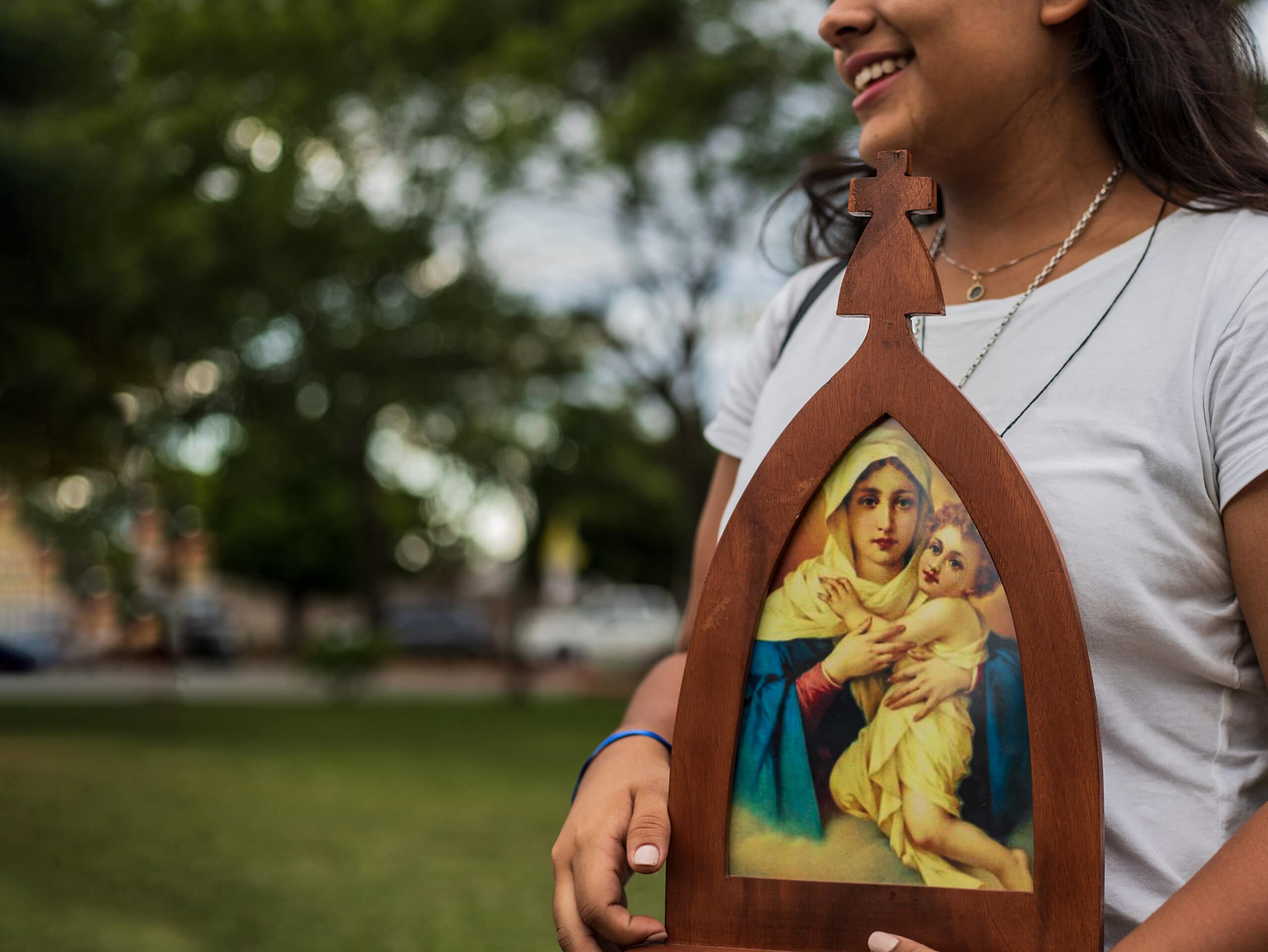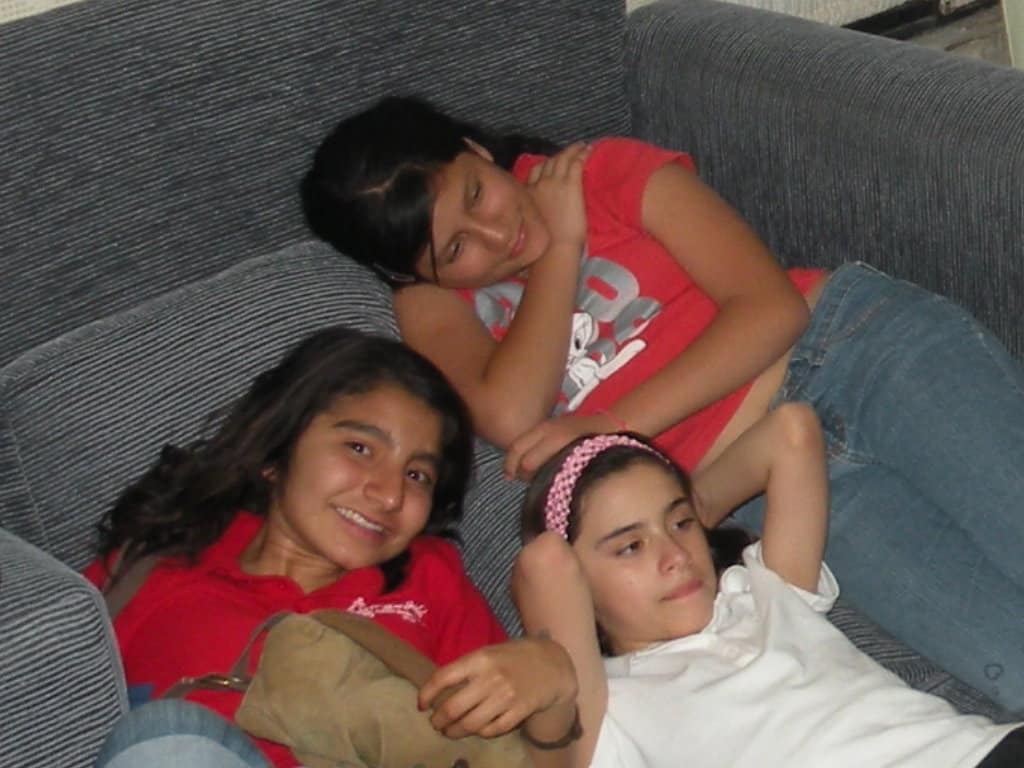“The kingdom of heaven is like yeast that a woman took and mixed in with three measures of flour until all of it was leavened.” (Mt 13,33).
What is the Universal Apostolic Confederation (UAC)
With the intention to be leaven for the Church and unite all apostolic efforts, Father Joseph Kentenich goes deeper into an idea that originated with St. Vincent Palotti, to determine one of the three apostolic objectives of the Schoenstatt Work.
He calls it the “Universal Apostolic Confederation”, whose acronym in English is UAC. Its objective is to promote the union of apostolic efforts at the parish, diocesan, national and international levels, in every social sphere, to confront together the challenge and the evangelizing task that present-day reality poses the Church.
In practice, this means that each person, community, or branch of the Schoenstatt Movement is called to contribute, with its own characteristics, in generating unity in plurality. The Universal Apostolic Confederation implies overcoming the spirit of division, rivalries, and individualism, which often marked the communities in past centuries, and which can threaten the unity of the Church.
How does Schoenstatt live this?
One may ask: How can we achieve this today? Father Alexandre Awi Mello, secretary of the Dicastery for the Laity, Family and Life, gives the following advice: “We should increasingly motivate the Church to work together, bringing together the different ecclesial bodies, including the movements. For example, we should participate in meetings of movements and events that bring together charisms”.
Let us see some practical cases of how the Schoenstatt Family, in various places in Brazil, currently works in this direction:
– Apostolic Youth: in several cities, Schoenstatt youth participate in the Diocesan Youth Sector, in national events – like the National Pilgrimage, recently carried out; the Route 300 project of Aparecida – in the diverse parish activities, etc.
– Mother and Queen Men’s Rosary: it gathers more and more men to pray the rosary and consequently they get involved in the life of the community; they are open to all those who want to pray and carry out various social initiatives throughout the year.
– Schoenstatt Rosary Campaign: it unites families in a great network of graces; it integrates other forces and apostolic charisms, also those who are estranged from the Church and works together with other pastoral ministries.

– Schoenstatt Sisters of Mary: they advise the Movement and are also inserted in the life of the diocese to which they belong, coordinating and encouraging apostolic initiatives and responding to the bishop as pastor; they make up the bodies that coordinate the Secular Institutes and the religious and consecrated communities.
Father Alexandre mentions other examples: “We have the grace of having a representative of the Boys’ Youth working precisely in a group that coordinates the different apostolic efforts that work with young people at the national level. We have participated in all the national youth meetings”. However, it is necessary to continue working further, Father Alexandre emphasized: “We could help more, for example, with family pastoral work. There was a time when a Sister of Mary was national secretary of the Family Ministry and helped coordinate the efforts of this ministry. This is another way of exercising the mission”.
How can I contribute to the UAC?

In everyday life there are many ways to promote unity in diversity, starting with the family, which should be the first example of unity. In it all the members, father, mother, children, grandparents, uncles, and aunts, etc., complement each other without losing their unity, without losing their personal originality. It is possible to be leaven in my family by paying attention to the experience of unity: ensuring that parents know the lives of their children and vice versa; that they have productive time together; that they engage in dialogue; that they pray and carry out many other activities. This prepares the heart for the acceptance of the various charisms and apostolates in their diversity.
Church work, whether at the parish, diocesan or any other level, is an excellent field of collaboration with the UAC. This involves, for example, being always associated with the different groups and pastoral activities of the parish, working together to generate positive results for the common good, participating in community meetings and events, working in collaboration with other pastoral activities, being close to our brothers and sisters in the community and to the parish priest. If we belong to a Schoenstatt branch or community, it is important to represent it in the life of the community and to place ourselves at the service of the Church.
At work, at school, at the university, in the different activities, it is also possible to collaborate with the UAC, promoting an atmosphere of unity. For example: avoiding intrigues and gossip, being united with people from other sectors, promoting meetings aimed at integration, collaborating mutually with the needs of the others, etc. The most important thing is to be united for a common good.
“As a Schoenstatt Family we should be especially interested in this since it is part of our mission. And we should not only be interested, but we are called to help make integration take place, participating in the organization”, expressed Father Kentenich, who dreamed of Schoenstatt as the heart of the Church. To carry out the mission of the UAC is to be, in fact, this beating heart: “What does ‘heart’ mean? It means being the deepest force of love possible and unsurpassable by anyone, the power of love that conquers the entire Church and fills it with heroism. The force of love, that is our mission” (Rome Conferences, 1965-66).
Source for research
FERNÁNDEZ DE ANDRACA, Rafael. 150 questions about Schoenstatt. Secular Institute of the Schoenstatt Fathers. 1st edition, São Paulo/SP: 2011.
NIEHAUS, Fr. Jonathan. Heroes of Fire. Secular Institute of the Schoenstatt Fathers. 2nd edition, 2004.
Source: Schoenstatt Brasil
